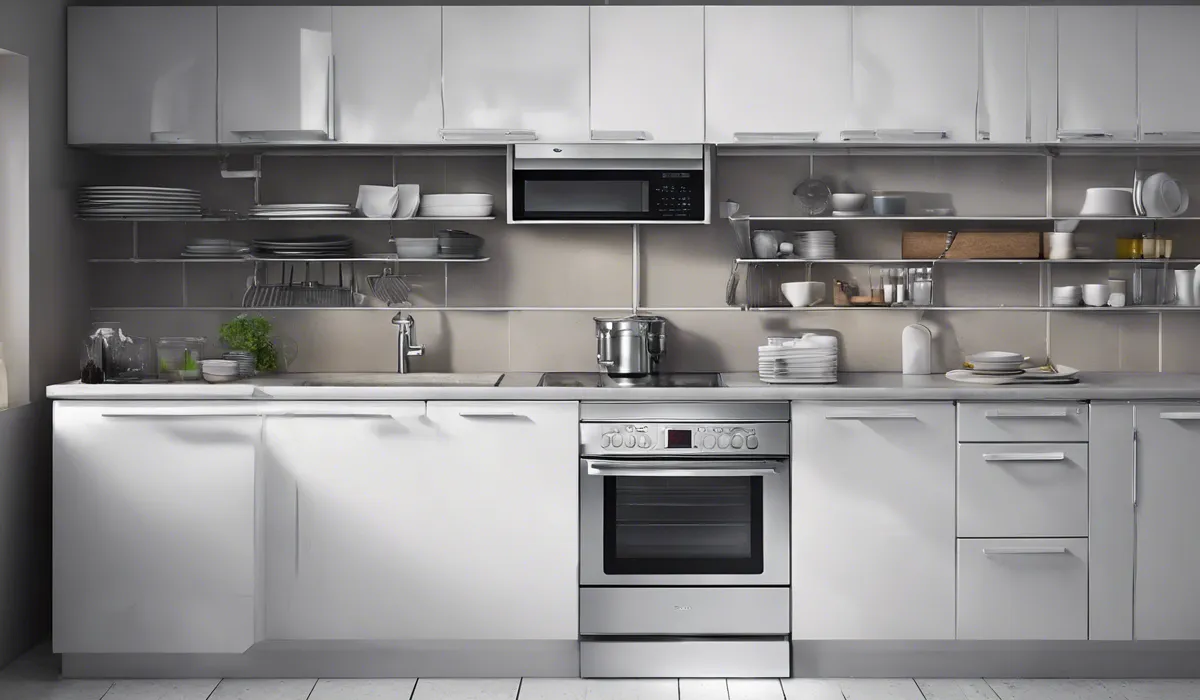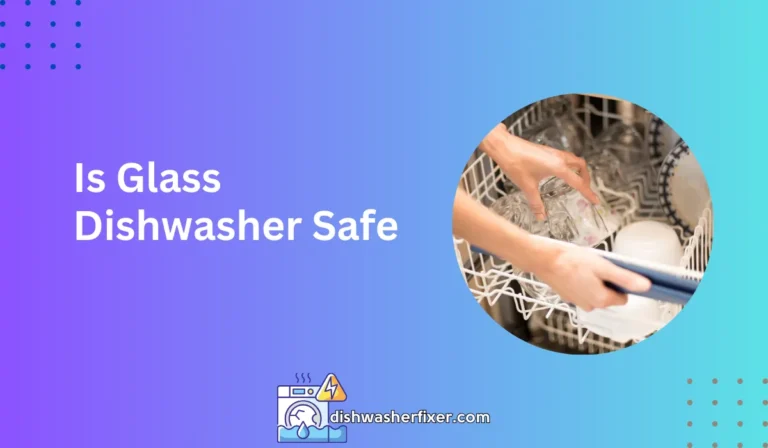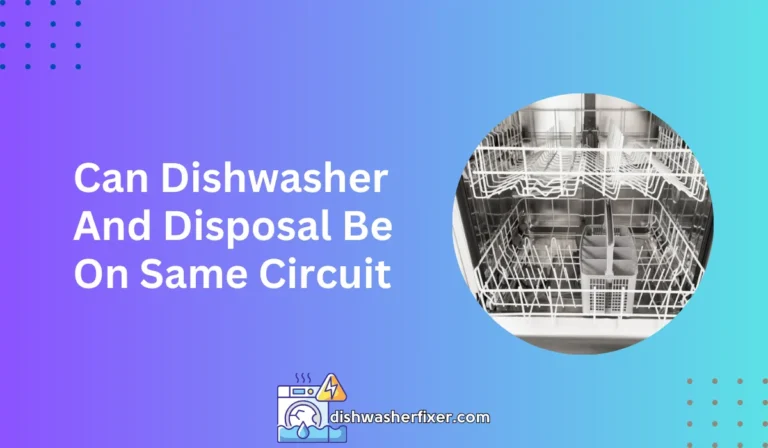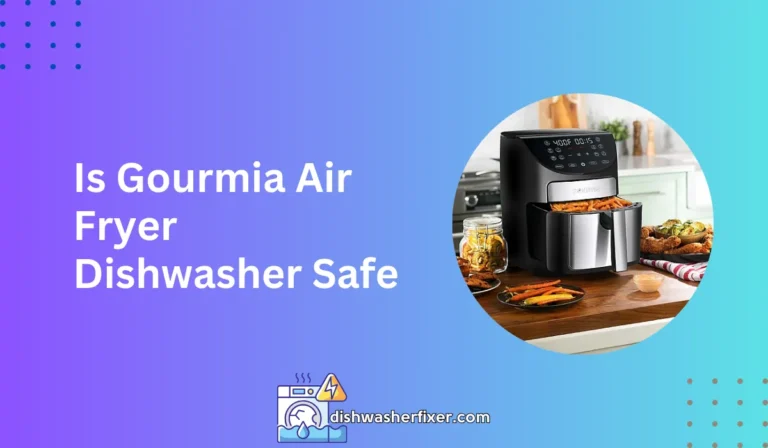What Do You Need for a Dishwasher? Essential Guide & Tips
For a dishwasher, you need detergent, rinse aid, a secure water connection, a drain, and an electrical outlet. Periodically, you might also require dishwasher salt for water softening, depending on your area’s water hardness.
Essential Dishwasher Components

Dishwasher Unit
At the heart of dishwashing efficiency is the dishwasher unit itself. You have several types to choose from, each catering to different space requirements and lifestyle needs.
Built-in Dishwashers
Built-in dishwashers are the most common and are designed to fit seamlessly under your kitchen countertop.
They require a permanent water connection and drain, offering a high capacity for dishes, which makes them ideal for families or frequent entertainers.
Portable Dishwashers
Portable dishwashers are an excellent choice for those with space constraints or for renters. They can be moved around and connected temporarily to a sink faucet, with no need for direct plumbing.
Countertop Dishwashers
For small households or compact spaces, countertop dishwashers are a perfect match. They sit on the countertop, require minimal installation, and can be easily filled and emptied without bending over.
Detergents and Rinse Aids
Choosing the right detergents and rinse aids is essential for achieving clean and sparkling dishes every time.
Dishwasher-Specific Detergents
Regular dish soaps are a no-go for dishwashers. Instead, opt for dishwasher-specific detergents, which are formulated to be effective in the unique environment of a dishwasher.
Rinse Aid for Spotless Dishes
Rinse aids are critical for preventing water spots and ensuring dishes dry clear and streak-free. They work by reducing the surface tension of water, allowing it to run off dishware more effectively during the final rinse cycle.
Pods, Powders, and Gels
You have a choice between pods, powders, and gels when selecting a detergent. Pods offer convenience, powders give you the flexibility to adjust the amount used, and gels can be effective for lighter loads.
Water Supply and Drainage
Adequate water supply and efficient drainage are crucial to a dishwasher’s operation.
Hot Water Connection
Dishwashers require a hot water connection to effectively clean and sanitize dishes. The ideal temperature for most dishwashers is around 120°F (49°C).
Drain Hose Setup
The drain hose removes used water from the dishwasher. It needs to be properly installed to prevent backflow and allow for smooth drainage.
Garbage Disposals and Air Gaps
If your sink is equipped with a garbage disposal, the dishwasher drain hose typically connects to it. An air gap may also be necessary to prevent dirty water from siphoning back into the dishwasher.
Installation Requirements

Electrical Connections
Proper electrical connections are necessary to power your dishwasher safely and effectively.
Dedicated Circuit
A dedicated circuit ensures that your dishwasher has the required electrical capacity without overloading your system. This helps to prevent tripping breakers and potential electrical hazards.
Ground Fault Circuit Interrupter (GFCI) Outlet
For added safety, a GFCI outlet is recommended for any appliance in close proximity to water, including dishwashers. This outlet will quickly cut off power if a fault is detected, reducing the risk of electric shock.
Plumbing Needs
Plumbing is an integral part of dishwasher installation, ensuring proper water inflow and outflow.
Water Inlet Valve
The water inlet valve is the gateway for water to enter the dishwasher. It must be in good working order to supply the correct amount of water during the wash cycle.
Water Pressure Considerations
Water pressure that is too low can hinder the dishwasher’s ability to fill properly, while pressure that is too high can lead to leaks. It’s important to ensure your plumbing can provide the optimal pressure for your dishwasher.
Space and Cabinetry
Before installing a dishwasher, it’s crucial to consider the space and cabinetry to ensure a proper fit and function.
Measuring for Size and Fit
Measuring the space where your dishwasher will go is essential. Ensure there’s enough room for installation and that the dishwasher dimensions are compatible with the cabinet cutout.
Door Clearance and Alignment
The dishwasher door needs to open and close without obstruction. Check that there is ample clearance for the door and that it aligns with adjacent cabinetry when closed.
Insulation and Noise Reduction
Installing insulation around the dishwasher can help reduce noise during operation. This is especially important in open-plan homes where kitchen sounds can easily travel to other areas.
Maintenance and Upkeep Accessories

Cleaning Supplies
Regular cleaning is necessary to keep your dishwasher running smoothly and your dishes sparkling clean.
Dishwasher Cleaner
Using a dishwasher cleaner every few months helps to remove buildup and maintain the efficiency of your appliance.
Non-abrasive Sponges and Brushes
For manual cleaning, use non-abrasive sponges and brushes to avoid scratching or damaging the interior of your dishwasher.
Replacement Parts
Over time, parts of your dishwasher may wear out and need replacement to keep it in top condition.
Filters
The filter captures food particles and debris. Cleaning it regularly and replacing it when necessary is vital for preventing clogs and odors.
Spray Arms
Spray arms can become clogged with food particles or scale buildup from hard water. Regular inspection and cleaning, along with replacement when needed, ensure effective dish cleaning.
Racks and Baskets
Racks and baskets may become worn or damaged with use. Replacing them when they start to rust or break can protect your dishes and improve cleaning performance.
Performance Enhancers
To enhance the performance of your dishwasher, consider using additional products designed to address specific issues.
Hard Water Treatment Solutions
If you live in an area with hard water, a hard water treatment solution can help prevent limescale buildup and keep your dishwasher running efficiently.
Dishwasher Salt
Dishwasher salt is used to recharge the water softener in built-in dishwashers, which is essential for those with hard water. It helps to prevent spots and film on dishes.
Fresheners and Deodorizers
Fresheners and deodorizers can keep your dishwasher smelling clean and fresh, enhancing the overall sense of cleanliness in your kitchen.
FAQs About Dishwasher Essentials
What detergent should I use for my dishwasher?
You should use a detergent specifically designed for dishwashers, which can be in the form of tablets, powder, or gel.
Is rinse aid necessary for a dishwasher?
Yes, rinse aid is necessary for most dishwashers to ensure spot-free drying and to prevent water spots on your dishes.
What type of water connection does a dishwasher need?
A dishwasher requires a secure connection to a cold or hot water supply line, depending on the manufacturer’s instructions.
Can I install a dishwasher without a drain?
No, a dishwasher must be connected to a proper drain to function correctly and dispose of the dirty water.
Do I need dishwasher salt even if my water isn’t hard?
Dishwasher salt is typically only required if you live in an area with hard water to help soften the water and prevent lime scale buildup.
Final Thoughts
To operate a dishwasher effectively, essential requirements include detergent, rinse aid, and a proper installation with a secure water connection, drain, and electrical outlet.
Additionally, maintaining optimal performance may necessitate the use of dishwasher salt to soften hard water, tailored to the specific needs of the user’s locality.





